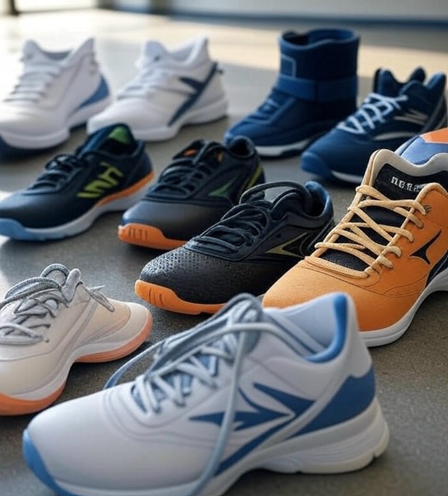2025 Boy club tryout date is coming, August 9, 2025. For those who want to make the team, here are the things you want to know. Make sure you sign up the tryouts at different clubs. Usually, clubs offer two or three pre-tryout evaluation before the final public tryout. You have more chance to get the know the coaches. Make sure you can attend those. For your convenience, here is the club list in the bay area.

Volleyball is a fast-paced, dynamic sport that demands athleticism, technical skill, and mental toughness. For boys preparing for club volleyball tryouts, the process can feel intense, but with focused preparation and the right mindset, your kid can showcase the abilities and boost the chances of making the team. This guide provides actionable advice, drills, and strategies to help you excel during tryouts and leave a lasting impression on coaches.
Proper gears are important for the safety in volleyball tryout. Click here to find out more.
Understanding the Tryout Process
Tryouts are a coach’s opportunity to evaluate players based on three key areas: athleticism, skill level, and coachability. Athleticism includes physical traits like speed, agility, and jumping ability. Skill level reflects your proficiency in volleyball fundamentals such as passing, setting, hitting, and serving. Coachability—the ability to listen, adapt, and show a willingness to improve—is often the deciding factor when players’ levels are close. Preparation and effort are also critical, as coaches notice players who stay focused, give maximum effort, and demonstrate a positive attitude. With this in mind, let’s explore practical tips to help you prepare and perform at your best.
Pre-Tryout Preparation
Build Your Physical Fitness
Volleyball requires explosive movements, endurance, and strength. Start training weeks or months in advance to ensure you’re in peak physical condition. Coaches often prioritize players who can move quickly and jump high, as these traits translate directly to on-court performance.
Cardiovascular Endurance: Incorporate activities like running, cycling, or jump rope to build stamina. Aim for 20–30 minutes of cardio 3–4 times a week to handle the fast-paced nature of tryouts.
Strength Training: Focus on exercises that enhance leg and core strength, such as squats, lunges, deadlifts, and planks. Strong legs are crucial for jumping, while a solid core improves balance and power for hitting and blocking.
Agility Drills: Practice ladder drills, cone drills, or shuttle runs to improve footwork and quick directional changes. Lateral movements are especially important for mimicking defensive shuffles on the court.
Hone Your Volleyball Skills
Mastering volleyball fundamentals is essential for standing out during tryouts. Even if you’re not the most experienced player, consistent practice can make a big difference.
Passing: Accurate passing is a cornerstone of volleyball. Practice forearm passing with a partner or against a wall, focusing on a stable platform and directing the ball to the setter’s position.
Serving: Overhand serves are standard in boy club volleyball. Work on consistent tosses and powerful hits. Practice float serves (no spin) and, if comfortable, jump serves to show versatility.
Hitting: Develop a strong approach, jump, and arm swing. Practice hitting specific lines (e.g., down the line or cross-court) to demonstrate control and precision.
Setting: Even if you’re not aiming to be a setter, basic setting skills show versatility. Practice clean, high sets to a hitter’s position.
Blocking: Focus on timing your jump and positioning your hands over the net. Pair up with a partner to simulate blocking scenarios and work on quick lateral movement.
Here is a list of training equipments you can use to improve the skills
Mental Preparation
Confidence and composure are vital during tryouts. Staying positive, even after mistakes, shows mental toughness. Visualize successful plays and practice positive self-talk to stay calm under pressure. Coaches value players who can handle stress and maintain focus.
During Tryouts: Making an Impression
Arrive Early and Prepared
Arrive at least 15–20 minutes early to warm up and get comfortable in the gym. Wear appropriate volleyball attire (athletic shoes, knee pads, comfortable shorts) and bring a water bottle. Being early signals responsibility and enthusiasm, which coaches appreciate.
Showcase Coachability
Coaches prioritize players who listen and adapt. When receiving feedback, acknowledge it with a nod or “Got it” and apply it immediately. Asking questions about a drill shows engagement and a willingness to learn, which can set you apart.
Hustle in Every Drill
Effort is everything. Dive for loose balls, sprint during sprints, and give 100% in every play. Hustle demonstrates your work ethic and can make up for minor skill gaps. Even if you miss a serve or shank a pass, your effort will leave a positive impression.
Communicate Effectively
Volleyball thrives on teamwork and communication. Call the ball (“Mine!”), encourage teammates, and stay vocal during drills. Clear, concise communication shows leadership and teamwork. Avoid negative body language like slumping shoulders or eye-rolling, as coaches notice these cues.
Stand Out in Key Drills
Tryouts often include drills to test specific skills. Here’s how to excel:
Serving Drill: Focus on consistency over power. Aim for the same spot repeatedly to show control. If confident, add a jump serve to demonstrate skill.
Passing Drill: Maintain a low, balanced stance and a smooth platform. Pass accurately to the setter’s position to prove reliability.
Hitting Drill: Show a strong approach and clean contact. Hit specific zones (e.g., deep corners) to display precision.
Scrimmage: Treat scrimmages like real games. Play your position well, communicate, and adapt to different roles if asked.
Position-Specific Tips
Tailor your preparation to the position you’re aiming for, based on your physical attributes and preferences:
Outside Hitter: Focus on powerful spikes and accurate passing. Practice hitting from the left side and work on your vertical jump.
Middle Blocker: Emphasize quick lateral movements and strong blocking. Practice footwork to close the block effectively.
Setter: Precision is critical. Practice quick, clean sets to hitters and improve hand-eye coordination.
Libero: Excel in passing and digging. Work on low, controlled dives and quick recovery to your feet.
Post-Tryout Follow-Up
After tryouts, thank the coaches for their time and express your enthusiasm for the team. If you don’t make the cut, politely ask for feedback on areas to improve. A growth mindset can leave a positive impression for future opportunities.
Mental and Emotional Resilience
Tryouts can be stressful, but staying mentally strong is key. Focus on what you can control—effort, attitude, and preparation. If you make a mistake, move on quickly and focus on the next play. Coaches value resilience, so show you can bounce back.
Nutrition and Rest
Proper nutrition and rest are critical for peak performance. Eat a balanced meal before tryouts. Stay hydrated. Get 8–9 hours of sleep the night before to ensure you’re alert and energized.
Final Thoughts
Making a boys’ club volleyball team requires a blend of physical preparation, skill development, and mental toughness. By focusing on athleticism, mastering fundamentals, and demonstrating coachability, you can stand out during tryouts. Start preparing early, practice consistently, and approach tryouts with confidence. With these strategies, you’ll be well-equipped to impress coaches and earn a spot on the team.



